Georgia Landowner Grows Pines for Profit with Field to Forest
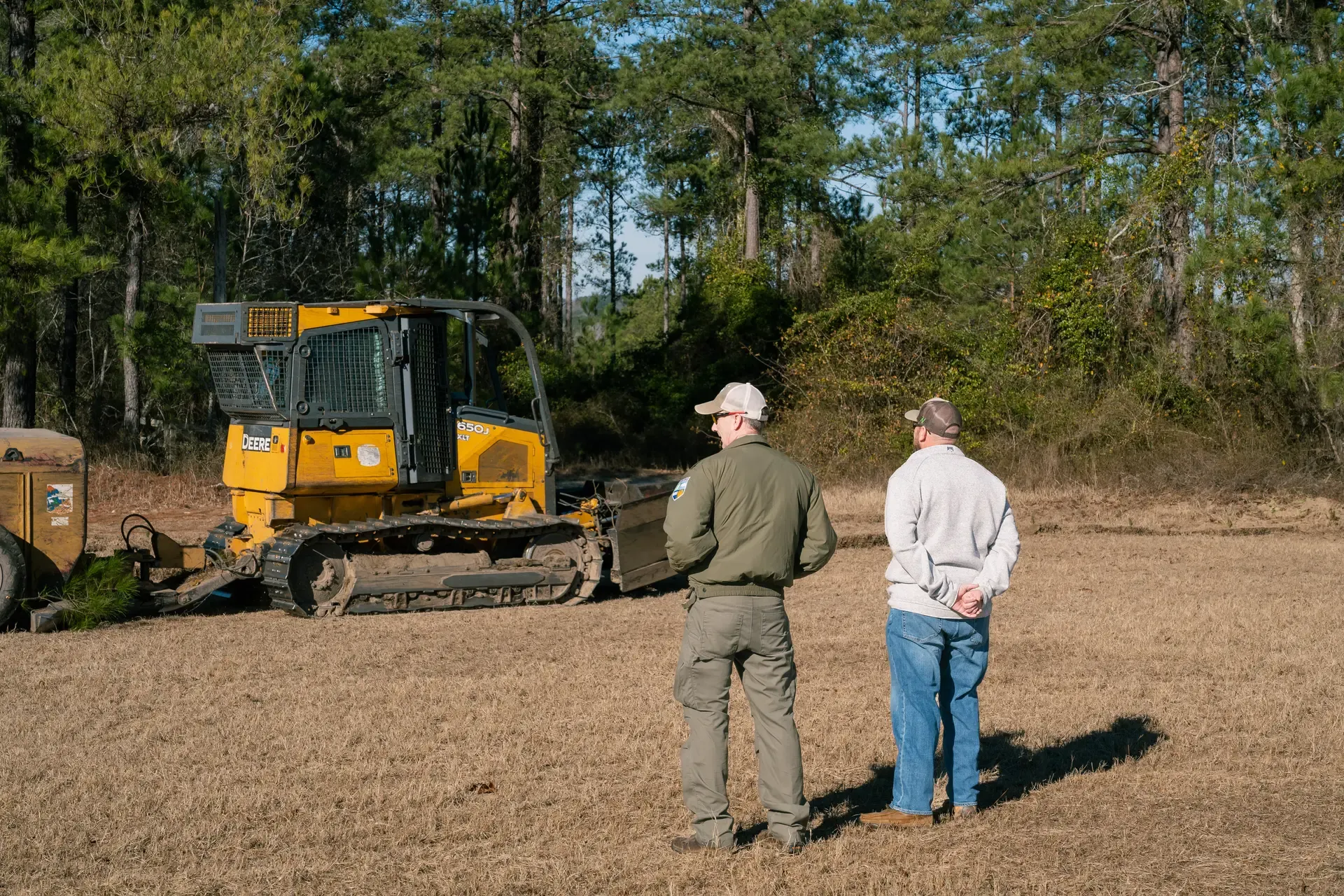
Forestry professionals oversee the planting of loblolly pine on Mitch Cliett's property.
Mitch Cliett grew up hunting with his father on a 134-acre property in Georgia. He remembers spending many days hiking along the property, across fields and through forests, in search of turkey and deer. He knew the land was healthy because of the active wildlife that lived there. As he has grown older, he has taken steps to maintain the health of that property while creating outdoor memories with his own children. One way Mitch has taken steps to steward a healthy property is enrolling his fields in AFF’s Field to Forest project.
Being the steward of the land, Mitch’s father saw an article about the Field to Forest project in their local newspaper. He read that the program provides landowners with income to plant native loblolly pine on their property, essentially planting pines for profit. Mitch’s father was immediately interested in the program, excited about the annual payments and that, in the future, the landowner keeps all the profit from harvesting the timber at the end of the growing period.
Field to Forest is available to Georgia landowners who own 40+ acres of pasture or row crops. Landowners who do not meet the minimum acreage requirement may be considered under specific criteria. For instance, Mitch did not have 40 acres to enroll but instead bundled his land with other landowners, totaling over 40 acres, to benefit from this opportunity. The project provides landowners with a guaranteed revenue stream and complimentary stewardship expertise to improve natural resources and enhance wildlife habitat. Learn more about your property’s eligibility today.
The program's expert foresters work with landowners to prepare their fields, to plant the loblolly pine, and to conduct both planting and post-planting maintenance. As the trees grow, landowners receive guaranteed annual income while keeping all the profit from thinnings throughout the growing years and any harvests after the end of the enrollment period.
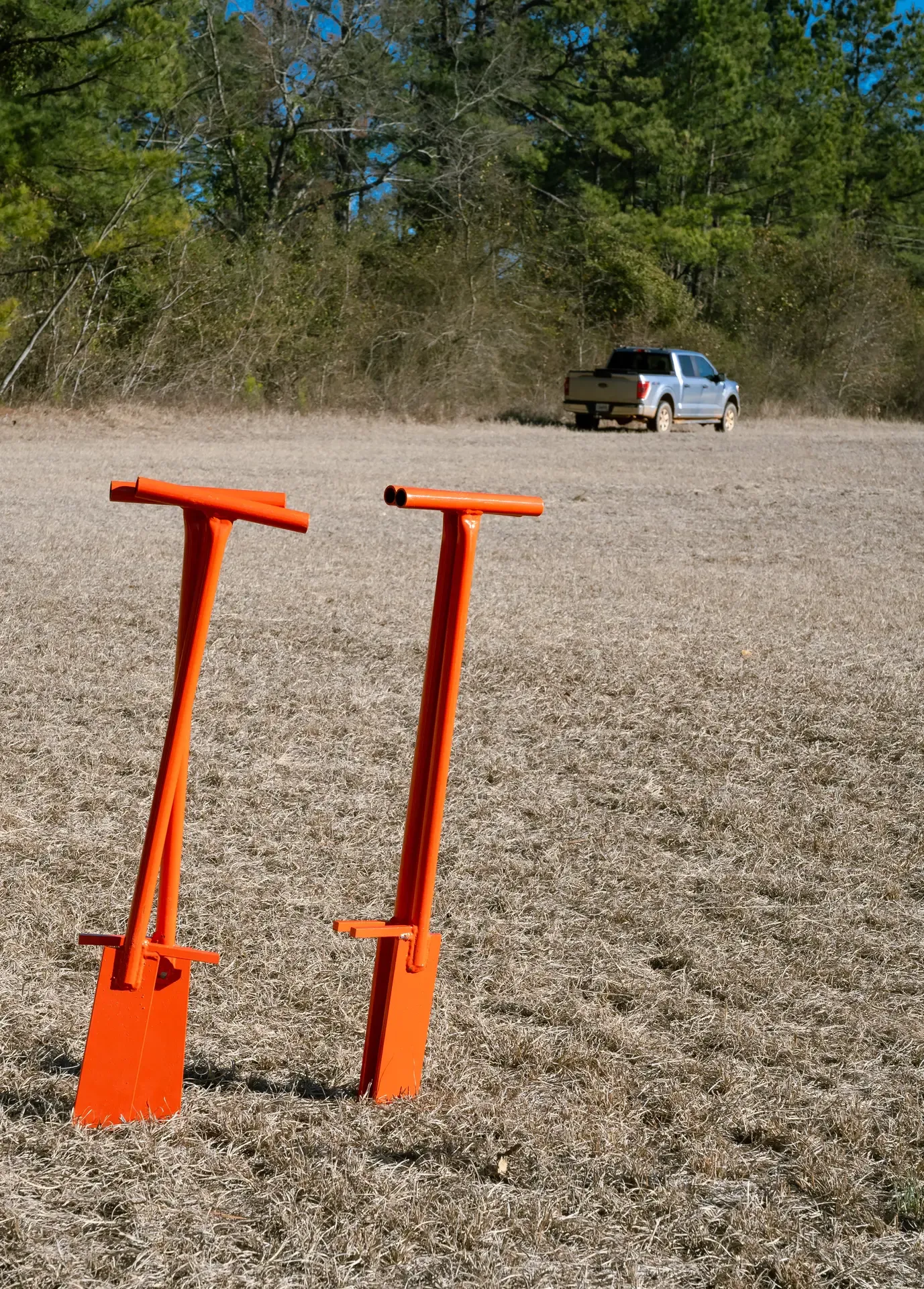
Foresters use dibble bars (pictured above) to plant trees.
The program will even pay for another replanting if the landowner chooses to keep the land forested, as it continues to provide financial and ecological benefits.
After the property was passed to him, Mitch’s father never worked the land. The family had not hayed the fields or grown crops on the open acreage. For the most part, the land was used as a hunting retreat for the Cliett family. Field to Forest was a perfect way for the family to convert their trees into edge habitat, the transitional habitat between forests and fields which attracts deer, turkey, and other animals. The land has always been plentiful with deer and turkey, but Mitch believes planting trees will enhance the population and make it more likely for the deer to wander into the open area of newly planted growth while foraging for food.
Mitch was excited to say that the tree planting “will really be an improvement on the land.” Increasing the productivity of the hunting grounds, while increasing the value of the land by generating income, was the selling point for him and his family.
“My oldest son has done a little bit of hunting with me,” explained Mitch as he thought about the future of his land. “The land will be handed down to me from my father, and I’ve got three young kids. My vision for the land is that it’ll stay in my family and will be passed down to me and then one of my children. Until then, it will be used as a hunting getaway,” said Mitch. Already thinking about the increase in deer sightings and the time he’ll be able to spend with family at this getaway property, Mitch said that “when it comes time to harvest the timber, I’ll probably look at thinning. But I’d like to keep trees on the property from now on.”
For more information on the Field to Forest project, visit https://familyforestcarbon.org/fieldtoforest/
Related Articles
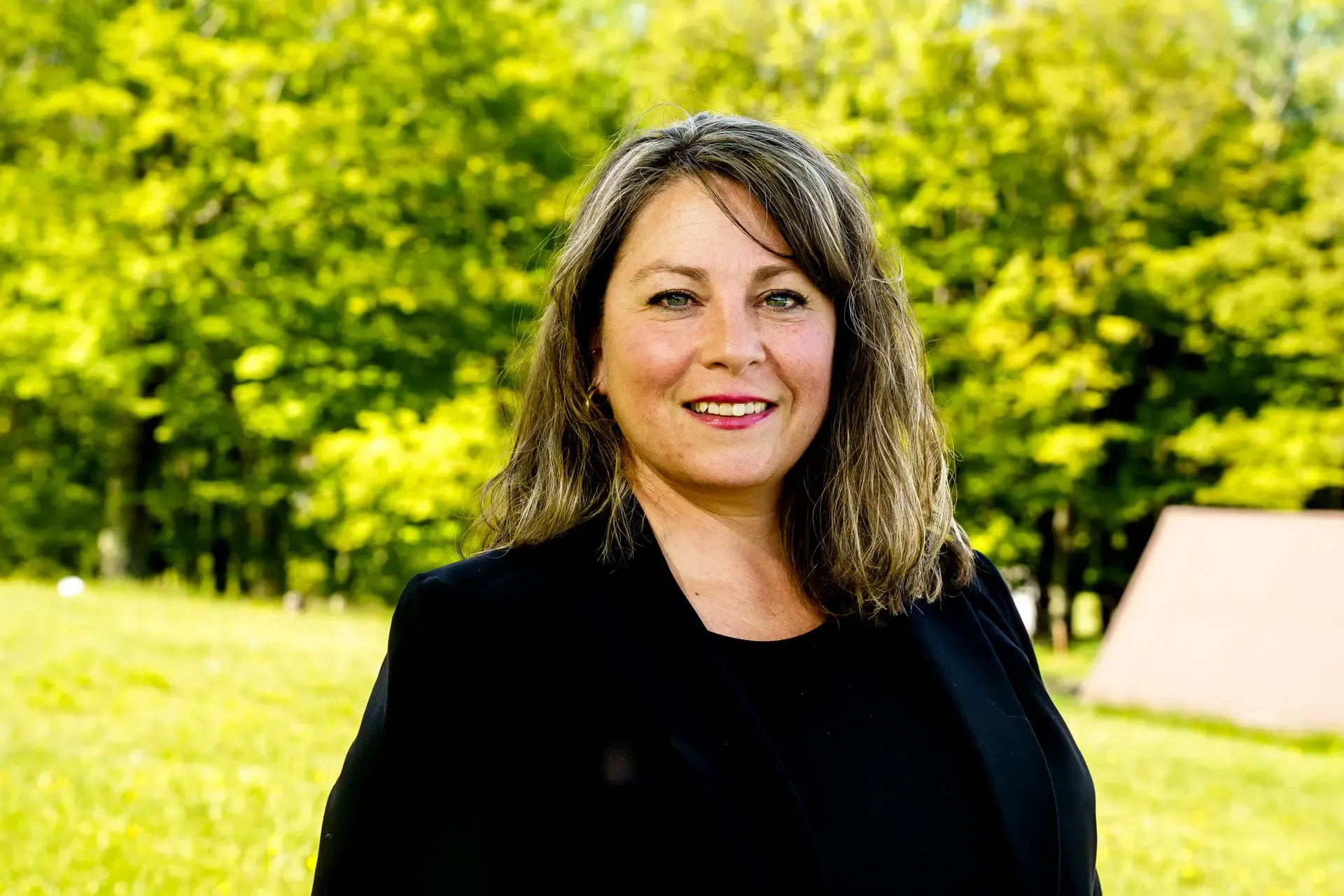
November 17, 2023
Forester Spotlight: Aimee Tomcho
“The magic of forests inspires me in ways words cannot describe. I can't think of better way to spend my life than walking among trees, working to keep forests in the landscape.”
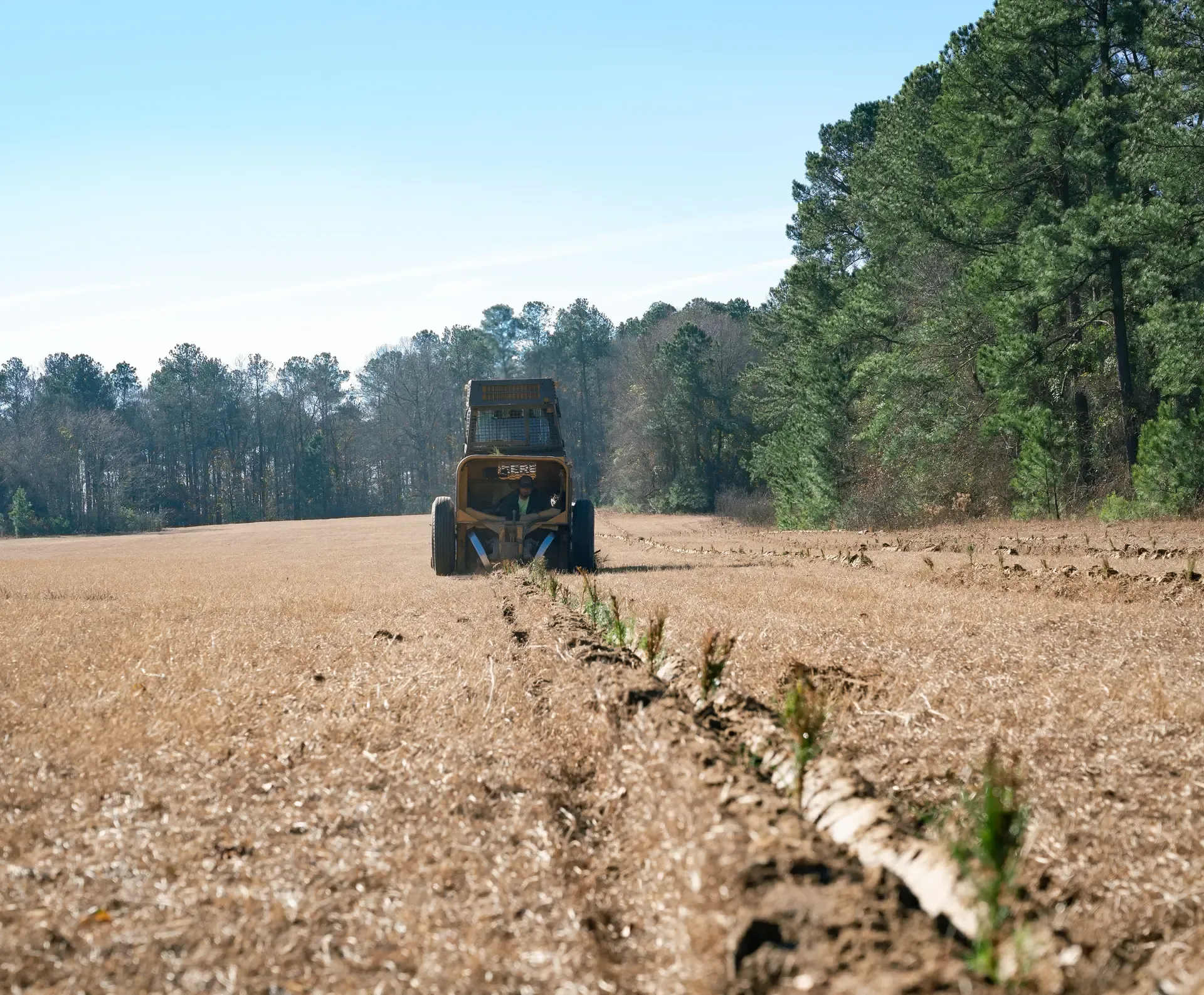
March 22, 2024
Partnering to Protect the Planet
The Field to Forest Tour was our most recent gathering designed to convene existing and potential funders from the public and private sectors to scale our collective climate impact.
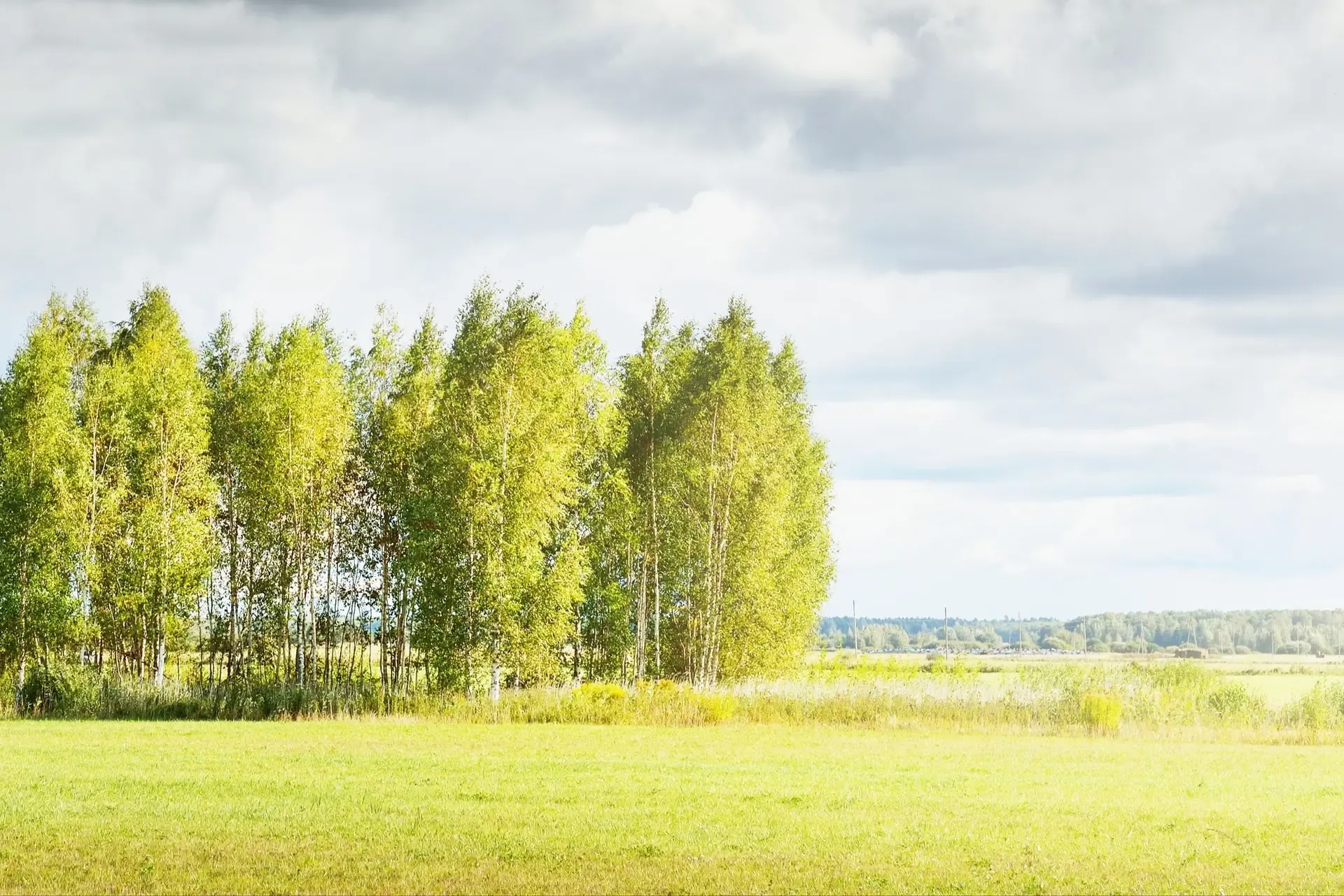
June 27, 2023
Field to Forest: A New Way to Invest in Traditional Georgia Pine
Let’s talk about Field to Forest, AFF’s new pilot carbon practice in Georgia. Field to Forest is designed to support family landowners in Georgia by planting regional-specific loblolly pine seedlings on marginally productive or difficult to manage pastures and croplands.